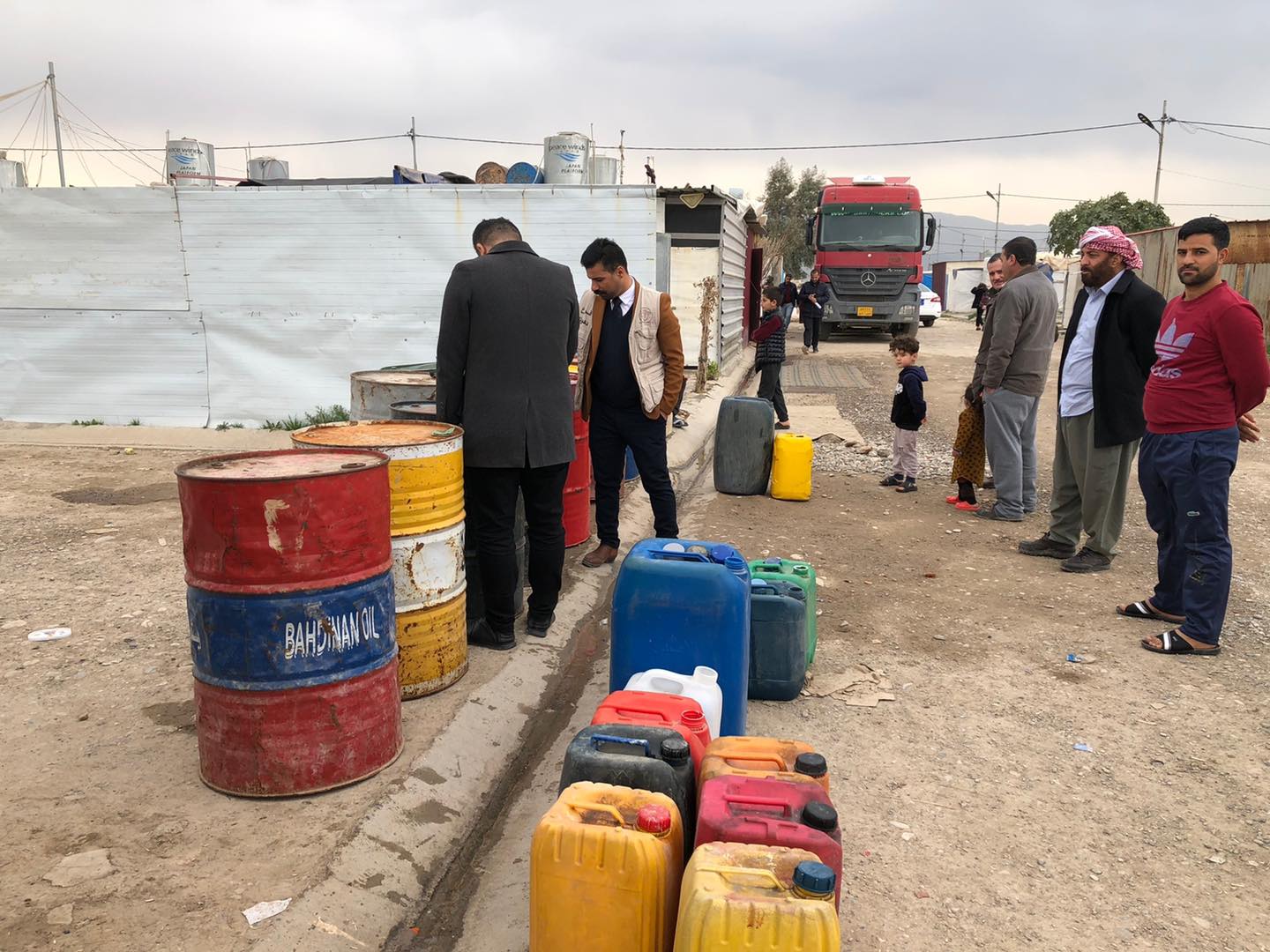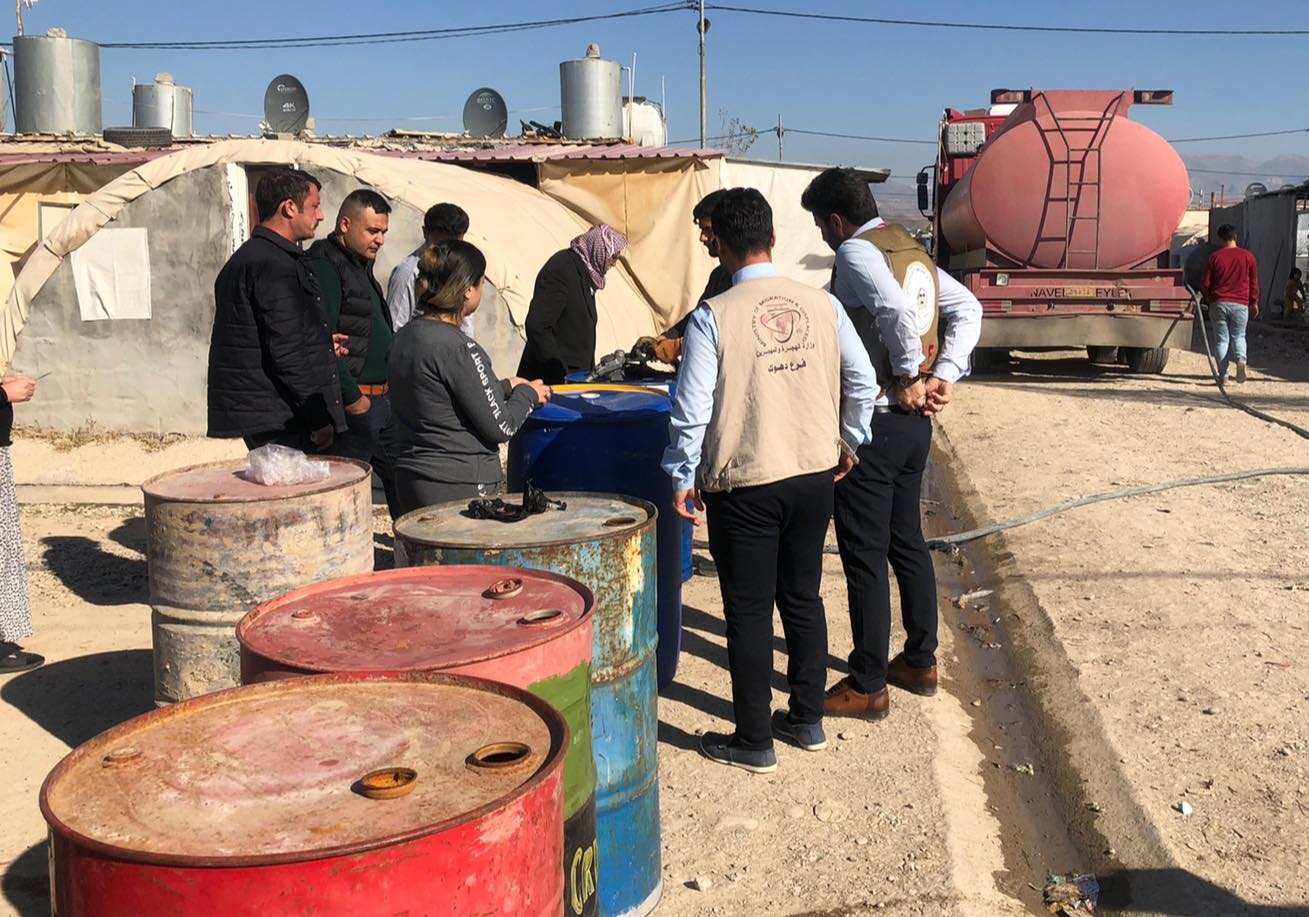The internally Displaced People IDPs residing in the camps of the semi-autonomous Iraqi Kurdistan Region IKR have not yet received their share of kerosene for the upcoming winter as the temperature is down, and are forced to spend cold nights using electric heaters.
According to KirkukNow's observations, kerosene was scheduled to be distributed to the IDPs at the beginning of last October but the distribution process was delayed at a time when Dohuk Northern Governorate is considered one of the cold areas, especially at night.
"We have been using heaters (electric heaters) for more than a week because the kerosene we received last year ran out. We suffer greatly from the cold during power outages, especially children. We are forced to warm ourselves with quilts and blankets," said Saad Ali Suleiman, a displaced person residing in Khanke camp.
Khanke camp in Dohuk is home to over 2,000 families.
Suleiman, who nine years ago was displaced from the Qahtaniyah (Tel Uzir) sub-district of Sinjar district, the hometown of the non-Muslim Ezidi (Yazidi) community, is demanding that oil be distributed before winter starts end of December.
"We were supposed to receive our share of kerosene at the beginning of last month, but we have not received a single liter yet and the distribution process has been delayed."
Though the temperature is down at night north of Iraq, the IDPs in Dohuk have not received their annual shares of 200-liter free kerosene neither from the Iraqi government nor from the Kurdistan Regional Government KRG in order to use it for heating in cold weather as state power supply sharply drops downs due to high consumption.
The price of a 200-liter barrel of kerosene in the market ranges between 180,000 Iraqi Dinars IQD (USD110).
A large part of the displaced are reluctant to return to their areas of origin due to the deteriorating security conditions, the lack of utilities, and the destruction of their homes.
There are more than 600,000 displaced people in the IKR, some of whom are distributed among 26 camps, 16 of which are in Dohuk, housing 26,000 displaced families, according to statistics from the KRG’s Joint Crisis Coordination Center JCC.

Each displaced family receives 200 liters of kerosene (one barrel) in two stages and at two different times.
Pir Dayan Jaafar, Director of the KRG’s Department of Migration, Displacement and Crisis Response in Dohuk, told (KirkukNow), "The Iraqi Minister of Immigration pledged at the beginning of October to provide the displaced with kerosene, but Baghdad did not send their share of the oil and we are waiting for its arrival to begin distributing it to the displaced.”
He expressed his support for the demands of the displaced to be supplied with kerosene on the scheduled date because the areas in which they live are colder compared to the rest of Iraq.
"We are approaching winter and the displaced need kerosene."
Saad Ali, a father of three children who works as a construction worker, says that he cannot buy kerosene on the black market.
"In the past 40 days, I only had two days of work, so how can I buy kerosene?"
This is not the first time that the distribution of kerosene has been delayed, and the displaced people also suffer from the absence of aid, the scarcity of drinking water, and the poor quality of food distributed to them by the Iraqi government.
The Iraqi Ministry of Oil exported over 109 million barrels of crude oil in October, at an average rate of 3.5 million barrels per day and an average price of $88.2 per barrel, generating $9.66 billion compared to $9.49 billion in September.
Iraq’s oil reserves are considered the world's fifth-largest with 140 billion barrels, the main source of revenues for the national budget.





